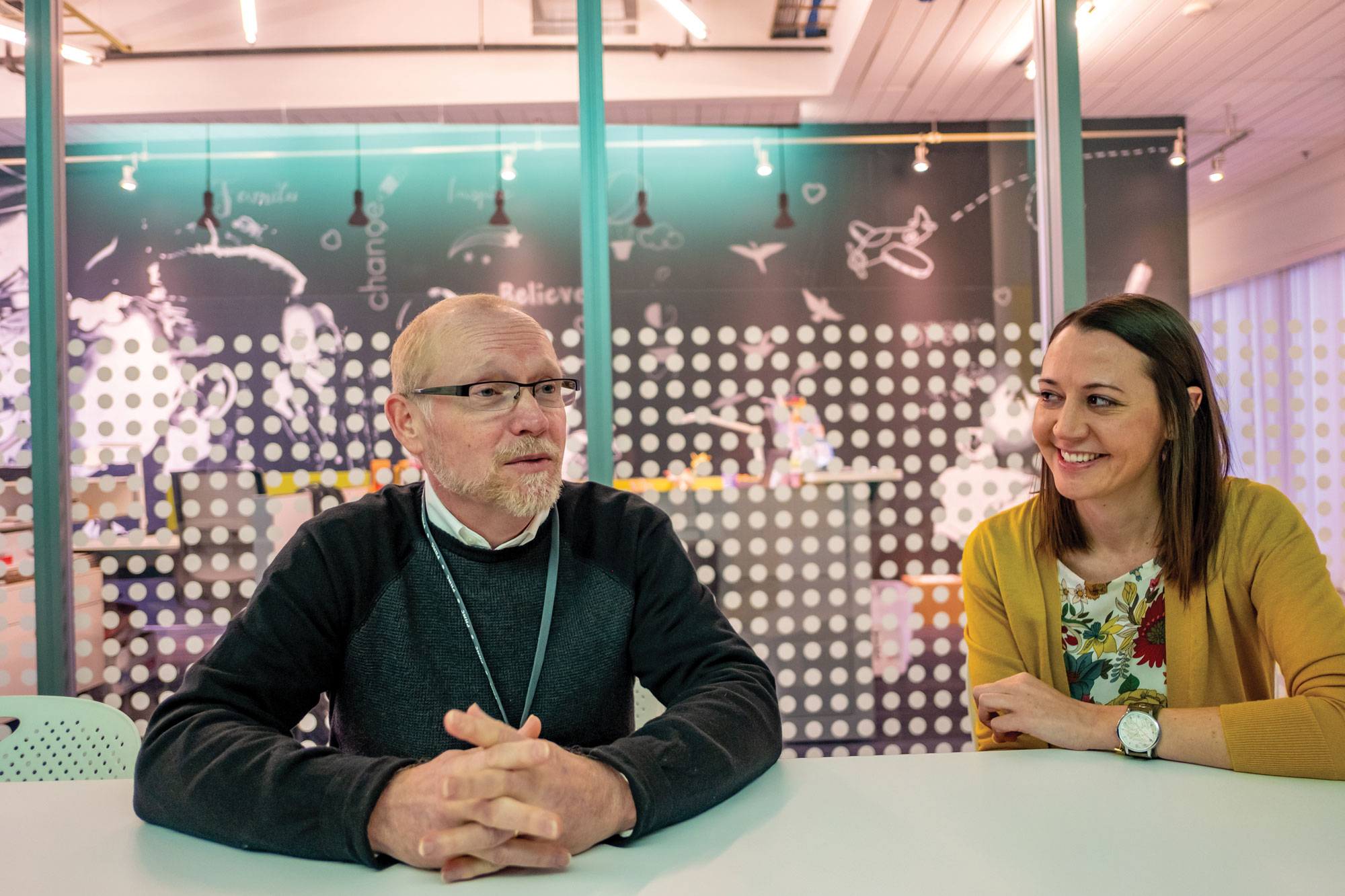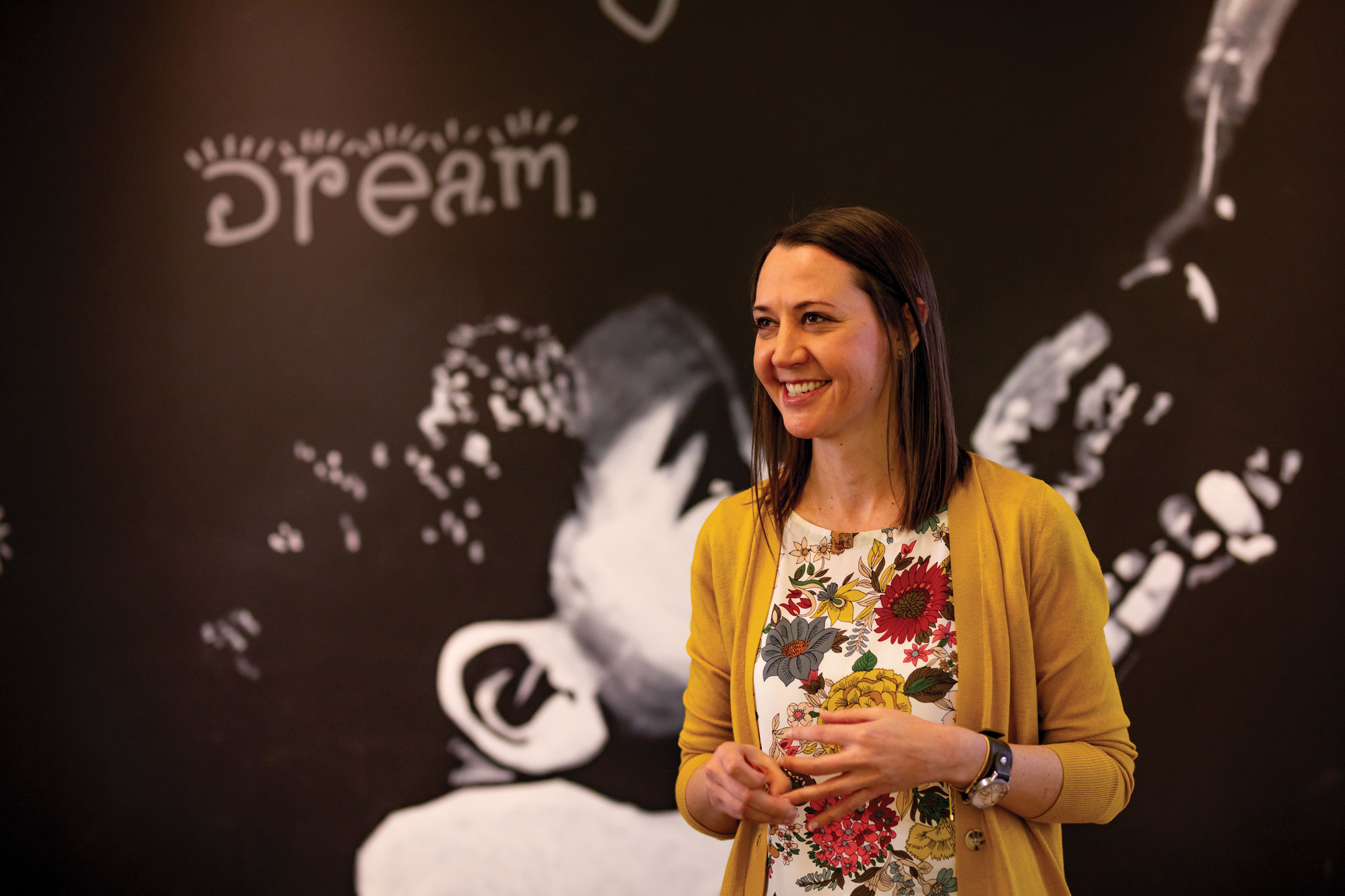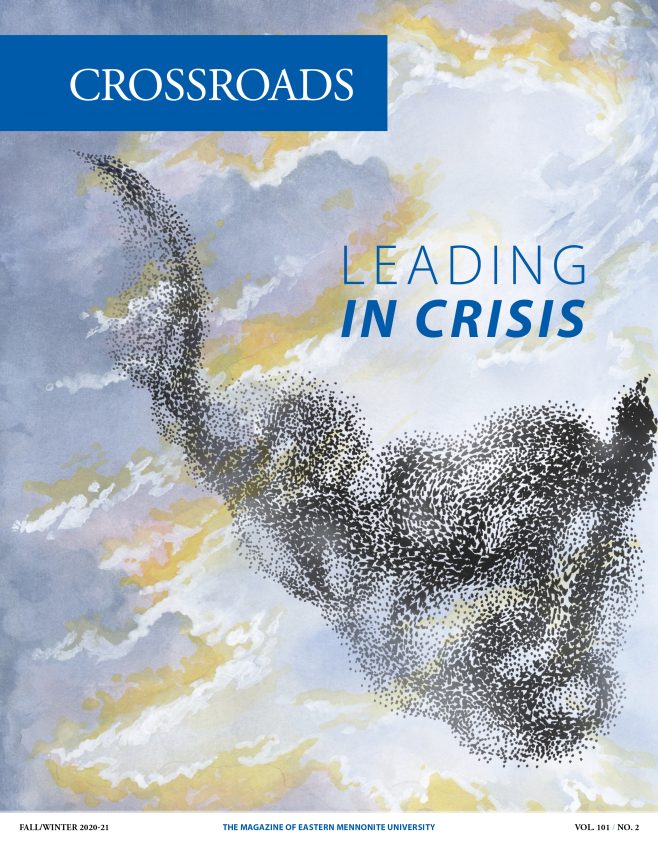
SOCIAL WORKER Heidi Hochstetler ’03 arrived at EMU not knowing what “social services” were. On cross-cultural in Tanzania as a sophomore, however, the native of rural Holmes County, Ohio, grew close to trip leader and then-professor of social work Nancy Fisher, who told her about the field – and said that Hochstetler had “it.”
“I was a social worker at heart, which is something that no one can learn or be trained in,” Hochstetler remembers Fisher telling her. “After 16 years in the field, I think ‘it’ is an unwavering belief that people can change and become better. Now, I can recognize ‘it,’ too, both in my colleagues and new employees. You have to have that belief to carry with you. This is hard, difficult work walking alongside people who are sometimes having the worst times in their life.”
Both child welfare advocates at the nonprofit agency Turning Points for Children, Hochstetler and colleague Scott Eldredge ’82 have long outlasted the average social work career length of just over seven years. Sustained by their commitment to children and their belief in the power of human potential, they’re providing important leadership in a new era for the city.
Eldredge was indelibly shaped by growing up in a Christian group home for young people with a variety of challenges managed by his parents. “Living in service to others was a commitment first modeled by my parents,” he said. While at EMU and after graduating, he worked with troubled teens in a variety of contexts, including alternative schools, residential treatment homes and wilderness programs.

Providing leadership in a new era of reforms, Heidi Hochstetler ’03 is director of child welfare services for one of Philadelphia’s 10 neighborhood-based regions. She moved to the city soon after graduation and has worked there for 16 years.
Eldredge’s 37-year career is marked by an almost entrepreneurial zeal for administration, beginning with his first part-time position. “They gave me the state regs and said, ‘If you can create a new foster care program and get funding for it, you’ll have a full-time job.’” Eldredge did this – the program eventually provided care for 638 children in community settings – and more, adding specialities of treatment foster care and adoption.
After 14 years at that agency, he moved to a second agency to start and direct their child welfare division, eventually becoming part of the senior leadership team and director of family services. In 1987, at the height of the AIDS crisis, just a few months before Princess Diana was photographed shaking an AIDS patient’s hand without wearing gloves, Eldredge founded a nonprofit that became the leading provider of medical foster care for HIV positive children in southeast Pennsylvania. While working a full-time job, he also served as executive director, supervising a staff of 62 that supported more than 330 children in need.
More recently, Eldredge’s administrative skills have contributed to the city’s social services reforms, implemented after the 2007 horrific death by neglect of disabled teenager Danieal Kelly. Under the public-private partnership, the city was divided into 10 neighborhood-based regions and private agencies are contracted to provide child welfare management services.
Eldredge and Hochstetler now direct two of these Community Umbrella Agency (CUA) regions. Each supervises approximately 115-135 case workers and other staff who provide integrated, comprehensive services to about 2,500 children and their families in crisis.
Eldredge’s CUA 9 was recently ranked first on the Department of Human Services’ annual “scorecard,” which measures success through positive outcomes for clients and their families. Hochstetler was a case management director in CUA 3, ranked third among the 10 areas, until her promotion earlier this year to take over and help improve CUA 10.
Though the work is challenging, relationships with the children they serve, with foster and adoptive parents, and with the case managers and staff they supervise give them both strength and hope.
Eldredge’s service isn’t just professional; it’s also personal. He and his wife Alice Moyer Eldredge ’81, a school nurse, have fostered 12 children, some with urgent medical needs. “Our years as foster parents were a powerful experience for our family, including my own three daughters. I have learned so much and been affirmed by my time with other foster and adoptive parents,” he said. “Now encouraging and training new social workers is a new reward.”
In her new administrative position since January, Hochstetler also spends more time “empowering other professionals in their own development.” That work is well informed by her 16 years of experience working and advocating within the welfare system.
One of Hochstetler’s former clients, now 20, reconnected with her after a long search. As an eight-year-old, he had known her only by her first name. He lives several states away, but calls weekly and plans to visit soon. “He considers me to be family because of the things I went through with him in his childhood as his case worker. That feels incredible and makes me want to do this work for the rest of my life.”
